Just In
- 4 hrs ago

- 5 hrs ago

- 8 hrs ago

- 8 hrs ago

Don't Miss
- Sports
 Pakistan vs New Zealand: Who Can Replace Mohammad Rizwan, Irfan Khan in PAK Squad?
Pakistan vs New Zealand: Who Can Replace Mohammad Rizwan, Irfan Khan in PAK Squad? - Movies
 Uorfi Javed Gets Trolled For Posing In Semi-n*de Clothes, Internet Asks To Do ‘High Five', Here's Why
Uorfi Javed Gets Trolled For Posing In Semi-n*de Clothes, Internet Asks To Do ‘High Five', Here's Why - News
 Kharge's Sharp Retort To PM Modi: Correcting Misinformation On Congress Manifesto 2024
Kharge's Sharp Retort To PM Modi: Correcting Misinformation On Congress Manifesto 2024 - Finance
 Multibagger Energy Stock To Reward Shareholders With 3 Bonus Shares, Hits 52-Week High
Multibagger Energy Stock To Reward Shareholders With 3 Bonus Shares, Hits 52-Week High - Automobiles
 Royal Enfield Unveils Revolutionary Rentals & Tours Service: Check Out All Details Here
Royal Enfield Unveils Revolutionary Rentals & Tours Service: Check Out All Details Here - Technology
 Elon Musk’s X Is Launching a TV App Similar to YouTube for Watching Videos
Elon Musk’s X Is Launching a TV App Similar to YouTube for Watching Videos - Education
 AICTE introduces career portal for 3 million students, offering fully-sponsored trip to Silicon Valley
AICTE introduces career portal for 3 million students, offering fully-sponsored trip to Silicon Valley - Travel
 Escape to Kalimpong, Gangtok, and Darjeeling with IRCTC's Tour Package; Check Itinerary
Escape to Kalimpong, Gangtok, and Darjeeling with IRCTC's Tour Package; Check Itinerary
World Athletics Day 2020: 8 Nutrition Tips For Athletes
We all need nutrition for increasing body growth, promoting good health and providing energy. Athletes of all skills and ages need nutrition too to enhance athletic performance, recover from an injury faster and lower the risk of diseases. They need optimal nutrition for fuelling their body and recovering after training.
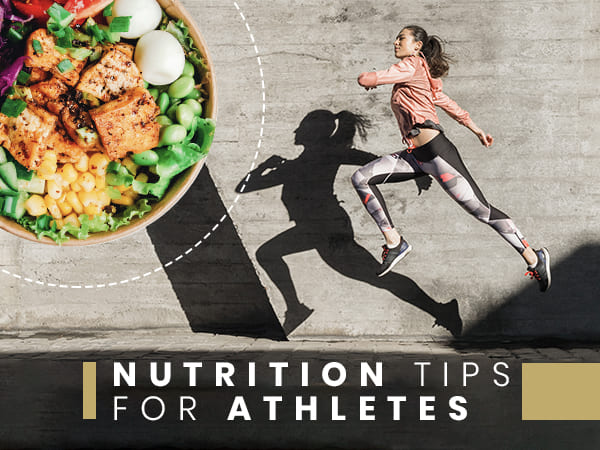
For an athlete, physical health is important to maintain an active lifestyle. Skill, strength and endurance are what an athlete needs to perform their best on the field. While athletes train, they need to fuel their body by eating the right kind of foods and drinking enough fluids to keep their body hydrated.
Here are some nutrition tips for athletes to help them get the most out of their training.

1. Have carbohydrates
Carbohydrates are an important macronutrient which is considered a primary source of fuel during exercise. They should be a major part of an athlete's meal because it improves athletic performance and wards off fatigue. Carbohydrates, especially complex carbs have more nutrients than simple carbs. Whole grains, fruits, vegetables, nuts and beans are good sources of complex carbohydrates [1].

2. Consume proteins
Athletes need protein to repair and build muscles that are broken down during training. A study published in the journal Sports Medicine shows that 1.8 to 2.0 g of protein per kg of body weight per day is required for athletes [2].
Ultra-endurance athletes who participate in continuous training should have little more protein than this, but not exceeding more than 2 g of protein.
Eggs, whole-grain toast, yogurt, lean meat and beans are rich sources of protein.

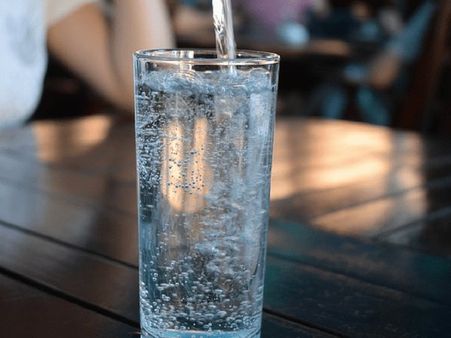
3. Stay hydrated
Keep your body hydrated by drinking plenty of fluids. Before, during and after exercise drink water so that you don't feel weak and dehydrated during hard training sessions or games.
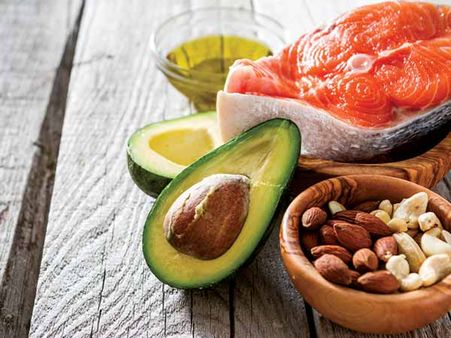
4. Include fats
Fat is another important macronutrient that an athlete needs to meet their energy needs and improve athletic performance. As per the recommendations of The American Dietetic Association, Dietitians of Canada and the American College of Sports Medicine, the fat intake for an athlete should range between 20 to 35 per cent of total daily calories. Consume avocados, whole eggs, fatty fish, chia seeds, extra virgin olive oil and nuts [3].
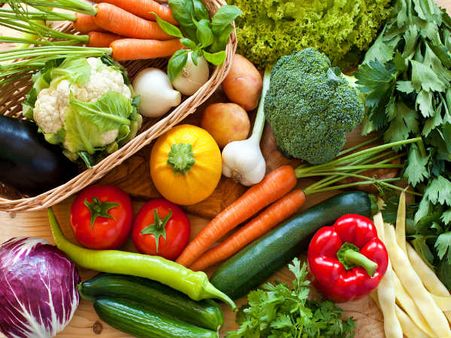
5. Load up on fruits and veggies
Athletes need to focus on micronutrients too that is found in different coloured fruits and vegetables. By eating a variety of coloured fruits and veggies, you will provide your body with several vitamins and minerals, which are necessary for optimal health and recovery. Try adding boiled veggies in your sandwiches, rice or salad and fruits to cereals or yogurt for an extra boost of nutrients [4].
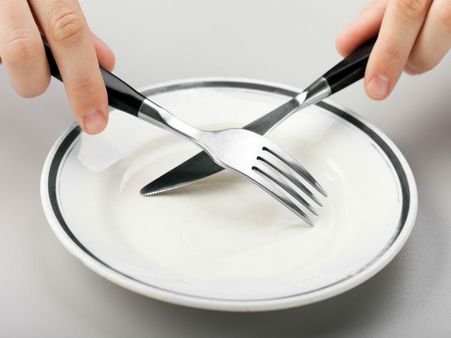
6. Don’t skip meals
Athletes should never skip their meals. They should start their day with the right breakfast and then following up with lunch and dinner. Healthy snacks can be had in between meals to curb hunger cravings. Athletes should consume meals every three to five hours to fuel their bodies [5].

7. Add salt in your diet
Athletes sweat a lot and as a result, there is a loss of fluids and sodium from the body. Adding salt in foods will increase your sodium intake and replace the sodium lost during sweat. However, ensure that you don't consume excessive salt as it may lead to high blood pressure [6].
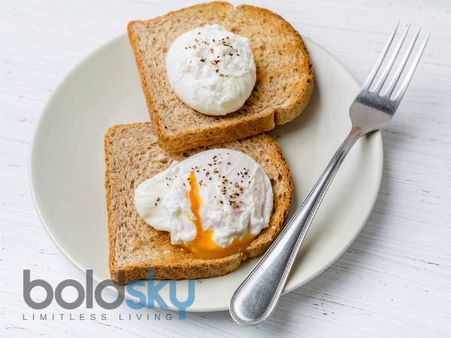
8. Eat/drink to recover after an intense workout
Your body uses a lot of energy in the form of carbs during intense workout or training sessions. So, to replenish the lost carbs, you need to have a recovery meal or snack within 30 to 60 minutes after your training. Try having whole-grain sandwich, fruits, lean meat and yogurt.

Nutrition Diet Plan For Athletes
• Breakfast
Sliced grilled potatoes paired with scrambled eggs, berries and fruit juice or fat-free milk.
• Lunch
Brown rice paired with lean meat, fish, veggies and yogurt.
• Dinner
Broiled lean cuts of meat, green salad and low-fat milk.
Common FAQs
1. Why is nutrition important for athletes?
A. Athletes require proper nutrition to provide them the energy to perform intense training or workout sessions. A proper nutrition will help improve strength, training, performance and recovery.
2. What foods should athletes avoid?
A. Sugary sports drinks, flavoured yogurt, beer and diet soda.
3. What should I eat before an athletic event?
A. Consume foods that are rich in complex carbs and protein-rich foods to provide your body with much-needed energy.
-
 diet fitnessDynamic Warm-Up Exercises For Youth Athletes
diet fitnessDynamic Warm-Up Exercises For Youth Athletes -
 disorders cureAthlete's Foot: Causes, Symptoms, Diagnosis, Treatment And Prevention
disorders cureAthlete's Foot: Causes, Symptoms, Diagnosis, Treatment And Prevention -
 wellnessAmazing Health Benefits Of Banana For Men: Good For Heart, Sexual Problems And Hair Growth
wellnessAmazing Health Benefits Of Banana For Men: Good For Heart, Sexual Problems And Hair Growth -
 womenTokyo Olympics 2020: Maana Patel, India’s First Female Swimmer At The Summer Games
womenTokyo Olympics 2020: Maana Patel, India’s First Female Swimmer At The Summer Games -
 healthExclusive: New Year 2024: Let's Understand The Value Of Nutrition Resolution And Set Realistic Goals!
healthExclusive: New Year 2024: Let's Understand The Value Of Nutrition Resolution And Set Realistic Goals! -
 healthCan Eating These Foods Trigger Tumour Growth?
healthCan Eating These Foods Trigger Tumour Growth? -
 healthWeight Loss: 4 Habits That Make You Gain Weight And Not Burn Fat
healthWeight Loss: 4 Habits That Make You Gain Weight And Not Burn Fat -
 healthBudget-friendly Nutrition: How to Maintain a Healthy Diet without Breaking the Bank?
healthBudget-friendly Nutrition: How to Maintain a Healthy Diet without Breaking the Bank? -
 healthIndian Cuisine: A Natural Solution To Chronic Pain Through Nutrition
healthIndian Cuisine: A Natural Solution To Chronic Pain Through Nutrition -
 healthNational Nutrition Week 2023: Did You Know That These Nutrition Deficiencies Can Lead To Death?
healthNational Nutrition Week 2023: Did You Know That These Nutrition Deficiencies Can Lead To Death? -
 healthTeachers' Day 2023: Healthy Lunch Box Recipes For Busy Teachers in India
healthTeachers' Day 2023: Healthy Lunch Box Recipes For Busy Teachers in India -
 healthIs Dal Good for Weight Loss?
healthIs Dal Good for Weight Loss?


 Click it and Unblock the Notifications
Click it and Unblock the Notifications





